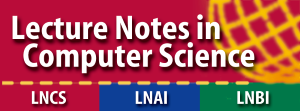SCSS 2024, August 28-30, Tokyo
SCSS 2024 will be held
at Tokyo University of Science Kagurazaka Campus, Tokyo, Japan
SCSS 2024 is the 10th International Symposium on Symbolic Computation in Software Science. It aims to promote research on theoretical and practical aspects of symbolic computation in software science, combined with modern artificial intelligence techniques.
Symbolic computation is the science of computing with symbolic objects (terms, formulae, programs, representations of algebraic objects, etc.). Powerful algorithms have been developed during the past decades for the significant subareas of symbolic computation: computer algebra and computational logic. These algorithms and methods are successfully applied in various fields, including software science, which covers a broad range of software construction and analysis.
Scope
The topics of the symposium include, but are not limited to, the following:
• program synthesis, transformation, and verification by AI methods
• automated reasoning and knowledge management
• theorem proving methods and techniques
• formal verification of AI and machine learning algorithms
• formal methods for the analysis of security
• symbolic methods for computational geometry and image processing
• symbolic methods for semantic web and cloud computing
• query languages for symbolic data
Latest News
[4/11/23: First call for papers was sent ], pdf
[1/3/24: Deadline was Extended], pdf
[23/6/24: PhD session is open], here
[24/6/24: Registration is open], here
[24/7/18: Program is open], here

